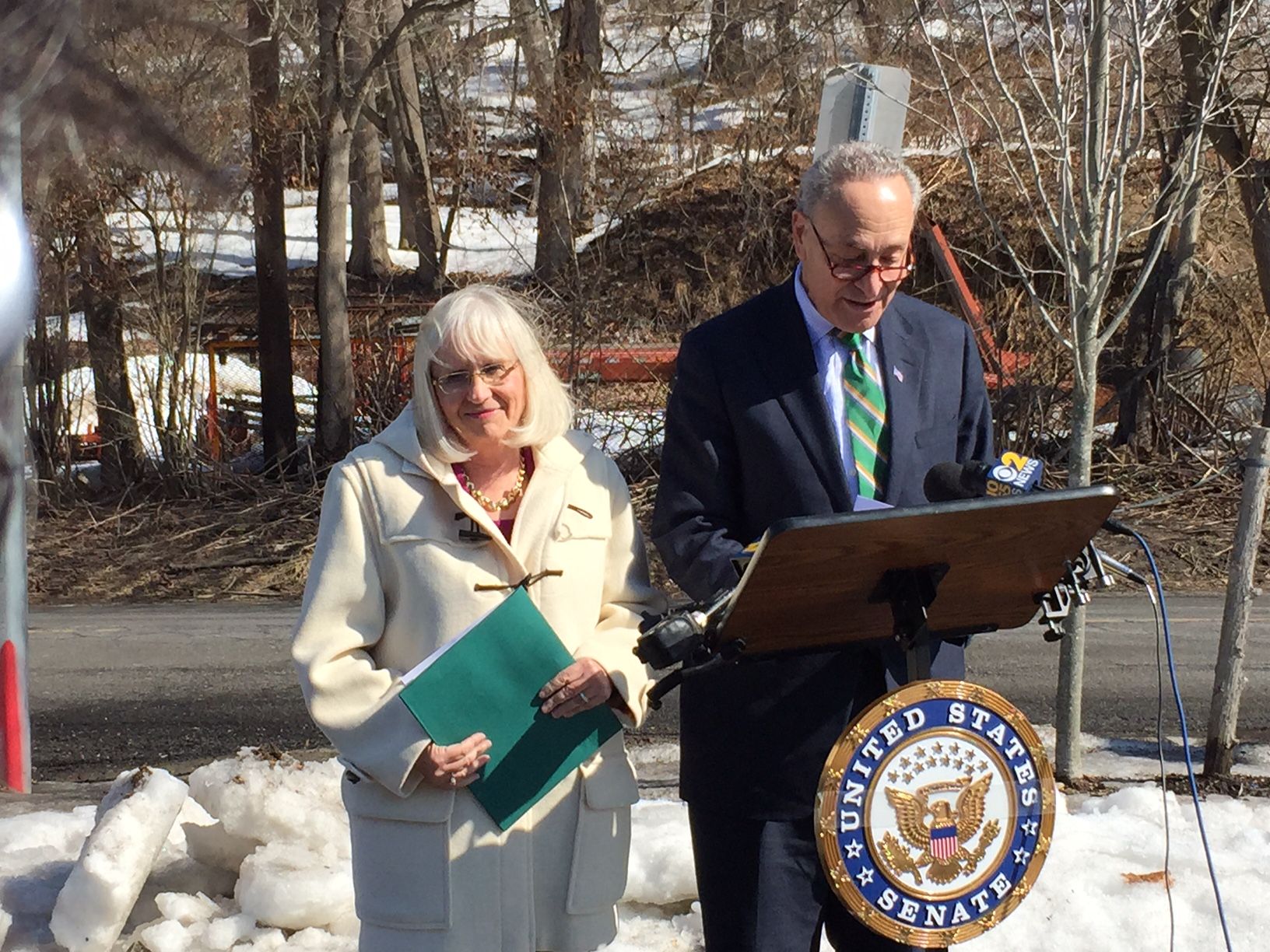U.S. Sen. Charles Schumer on Monday called on the federal Environmental Protection Agency to conduct a study on the long-term health effects of the use of the chemical Pentachlorophenol to treat wooden utility poles, which he said has been deemed unsafe by the agency in small doses and outlawed in several countries.
Joined by North Hempstead Town Supervisor Judi Bosworth and Port Washington community leaders at Manhasset Valley Park in Manhasset, Schumer, a Democrat, said recent studies on the effects of Pentachlorophenol – known also as “Penta” – have been narrow in scope and conducted by private firms, making them insufficient.
“We need a broad, public and strong investigation,” Schumer said. “We need the EPA, which is the authority on testing chemicals and health risks they pose, to conduct a thorough and comprehensive federal study on Penta’s long-term effects and we don’t need any more delay. We need them to do it now.”
He also urged PSEG Long Island, which last year put up more than 200 80-foot wood utility poles within the Great Neck, Manhasset and Port Washington communities that were treated with the chemical, to immediately halt further installation of such poles until a study is completed.
Penta has been used on 95,000 of the 324,000 utility poles put up across Long Island by the former Long Island Power Authority, Schumer said.
According to the EPA, short-term inhalation of Penta has been known to have toxic effects. The chemical is considered a carcinogen.
Bosworth in January wrote to the EPA to outlaw the use of Penta on utility poles due to its unknown impact on the community’s water supply and marine life.
“Given that the majority of other uses of the product have been prohibited since 1984, I request that you take the final step to eliminate this threat to our communities and our government and immediate move to ban the chemical, as other national governments have done,” Bosworth wrote.
Last September, the North Hempstead town council approved a law requiring utilities to remove decommissioned utility poles, as well as another law requiring utilities to install signs on new poles treated with Penta warning residents of the chemical’s presence and to wash their hands if a poles is touched.
PSEG Long Island and the Long Island Power Authority in January filed sued against the town in federal court over the law, alleging their First Amendment rights were violated to single out utility poles.
The law, the utilities argued, does not include “similarly situated wood products” treated with the chemical, like docks, piers, bulkheads, fence posts, park benches, picnic tables and railroad ties.
In a statement, PSEG Long Island spokesman Jeffrey Weir said the utility is abiding by current EPA determinations and would “respond and comply accordingly” to a revised determination by the agency.
Among the utility’s top priorities, he said, are the health and safety of PSEG employees and customers.
Bosworth said Monday the issue of Penta’s use on new utility poles was brought to the town’s attention after Port Washington community advocates suggested the town seek alternatives, such as non-toxic composite poles, among others.
Patti Wood, the founder and executive director of the Port Washington-based non-profit Grassroots Environmental Education, said alternatives to Penta would be safer but more expensive to implement.
She also noted a statement on PSEG Long Island’s website saying it wanted to be a “good neighbor” and urged residents who touch Penta-treated utility poles to wash their hands, and questioned why the utility would be opposed to the signage law.
“PSEG wants to be a good neighbor, but they’ll sue anyone who tries to warn people of the toxic chemicals PSEG is using,” she said. “This is not how a good neighbor would act.”



